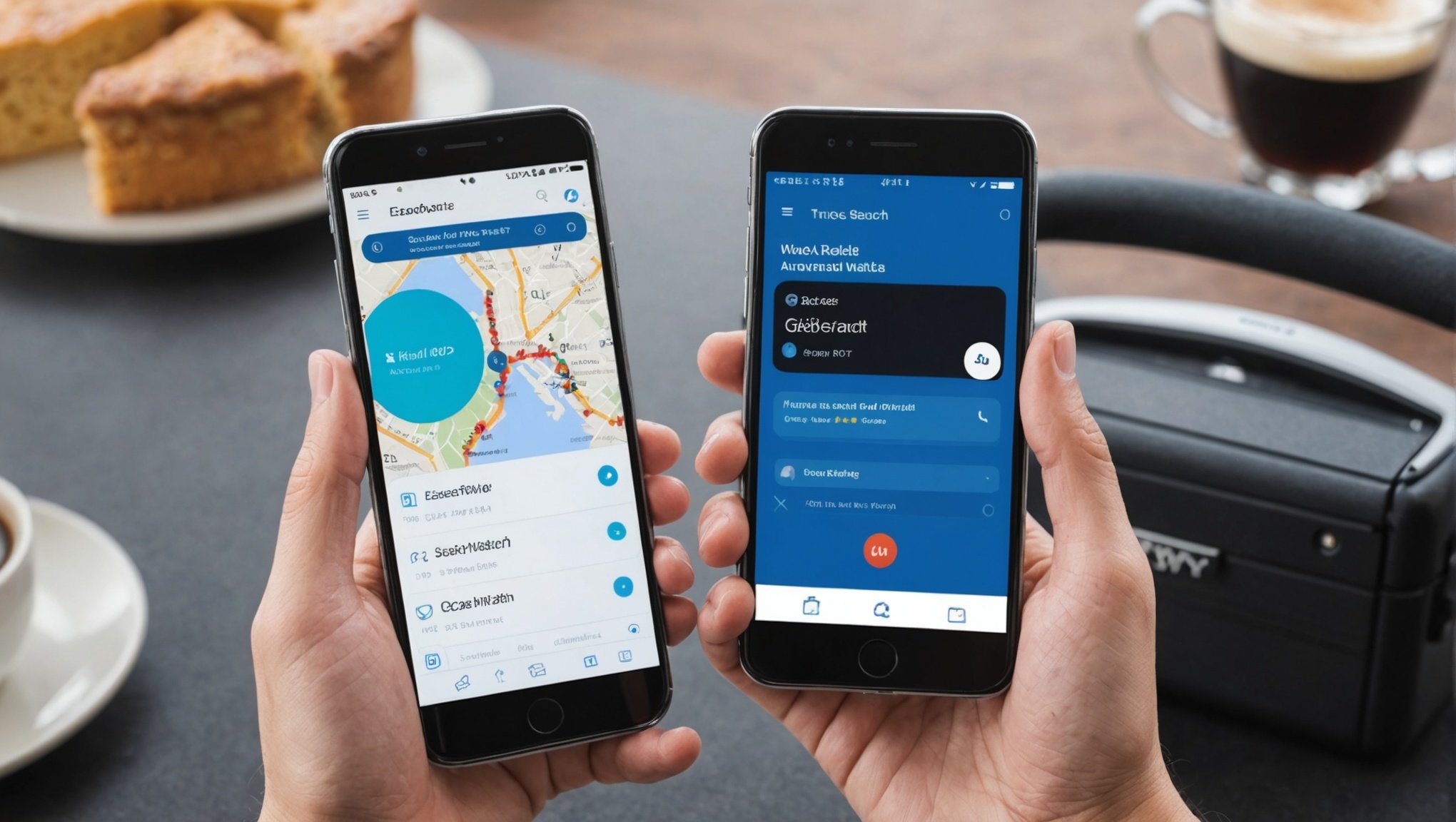Maximizing Voice Search Potential for UK Travel Websites: Essential Optimization Strategies
In the rapidly evolving digital landscape, voice search has emerged as a pivotal component of modern search engine optimization (SEO) strategies, particularly for travel businesses in the UK. As more users turn to voice assistants like Siri, Google Assistant, and Alexa to plan their trips, optimizing your travel website for voice search is no longer a luxury, but a necessity. Here’s a comprehensive guide on how to maximize the potential of voice search for your UK travel website.
Understanding Voice Search and Its Impact on Travel Businesses
Voice search is revolutionizing the way people interact with the internet. Unlike traditional text-based searches, voice queries tend to be more conversational and often include long-tail keywords. For travel businesses, this means that users are likely to ask more specific and detailed questions, such as “What are the best hotels in London for a family vacation?” or “How do I get to Heathrow Airport from central London?”
Topic to read : Navigating International Financial Regulations: A Guide for UK Fintech Startups to Achieve Compliance in a Changing Landscape
Why Voice Search Matters for Travel
- Convenience: Voice search offers a hands-free experience, which is particularly useful for travelers who may be multitasking or on the go.
- Natural Language: Voice queries mimic how people naturally speak, making it easier for users to find what they need without the hassle of typing.
- Local SEO: Voice search often includes local intent, such as “best restaurants near me” or “hotels in Edinburgh.” This makes local SEO crucial for travel businesses.
Optimizing Your Website for Voice Search
To capitalize on the growing trend of voice search, you need to optimize your website accordingly. Here are some essential strategies:
Keyword Research and Content Creation
- Long-Tail Keywords: Focus on long-tail keywords that reflect the conversational nature of voice queries. For example, instead of targeting “London hotels,” aim for “family-friendly hotels in London”.
- Natural Language Content: Write content that sounds natural and conversational. Use questions and answers in your content to match the query format of voice searches.
- FAQ Pages: Create comprehensive FAQ pages that address common voice search queries related to your travel services.
Voice Search Optimization Techniques
- Voice Search Queries Analysis: Use tools to analyze common voice search queries related to travel and incorporate these keywords into your website content.
- Structured Data: Implement structured data (schema markup) on your website to help search engines understand the context of your content better.
- Mobile Optimization: Ensure your website is mobile-friendly, as most voice searches are conducted on mobile devices. Google favors fast-loading, mobile-optimized websites in its search results.
Enhancing User Experience Through SEO Strategies
A seamless user experience is critical for converting voice search traffic into bookings. Here’s how you can enhance your website’s user experience through effective SEO strategies:
Also to discover : Key Elements for Building an AI-Powered Fraud Detection System in the UK Insurance Sector
Local SEO
- Google My Business: Claim and optimize your Google My Business listing. This includes adding accurate and up-to-date information about your business, such as address, phone number, and operating hours.
- Local Content: Create content that is relevant to your local audience. For example, blog posts about local attractions, events, or travel tips can attract local search traffic.
On-Page SEO
- Page Speed Optimization: Ensure your website loads quickly, as page speed is a key ranking factor. Google’s guidelines suggest that websites should load within 3 seconds to avoid high bounce rates.
- Image Optimization: Optimize images on your website by using descriptive alt tags and file names that include target keywords.
- Internal Linking: Use internal linking to guide users through your website and help search engines understand your content hierarchy.
Leveraging Digital Marketing Services for Voice Search
Digital marketing services can significantly enhance your voice search optimization efforts. Here are a few ways to leverage these services:
SEO Services
- Professional SEO Audit: Conduct a thorough SEO audit to identify areas of improvement on your website. This includes keyword research, on-page optimization, and technical SEO.
- Content Marketing: Develop a content marketing strategy that includes blog posts, guides, and other resources that answer common voice search queries.
- Link Building: Build high-quality backlinks from relevant travel websites and local directories to improve your website’s authority and visibility in search results.
Social Media Integration
- Social Media Presence: Maintain an active presence on social media platforms. Share content that is optimized for voice search and engage with your audience to build brand awareness.
- Customer Feedback: Use social media to collect customer feedback and testimonials, which can be used to improve your website’s content and user experience.
Practical Insights and Actionable Advice
Here are some practical tips and actionable advice to help you get started with optimizing your travel website for voice search:
Voice Search Checklist
- Conduct Keyword Research: Identify long-tail keywords relevant to your travel services.
- Optimize Content: Write natural, conversational content that answers common voice search queries.
- Use Structured Data: Implement schema markup to help search engines understand your content better.
- Ensure Mobile Optimization: Make sure your website is fast, mobile-friendly, and easy to navigate.
- Enhance Local SEO: Optimize your Google My Business listing and create local content.
Example of Successful Voice Search Optimization
For instance, a travel agency in London could optimize its website for voice search by creating a FAQ page that answers questions like “What are the best things to do in London?” or “How do I book a hotel in London?” By incorporating these long-tail keywords naturally into the content, the agency can improve its visibility in voice search results.
Table: Comparing Voice Search Optimization Strategies
| Strategy | Description | Benefits |
|---|---|---|
| Keyword Research | Identify long-tail keywords relevant to travel services | Improved search visibility, targeted traffic |
| Natural Language Content | Write content that sounds conversational | Better user experience, higher engagement |
| Structured Data | Implement schema markup to help search engines understand content | Enhanced search engine understanding, improved rankings |
| Mobile Optimization | Ensure website is fast, mobile-friendly | Better user experience, higher conversion rates |
| Local SEO | Optimize Google My Business listing, create local content | Increased local search visibility, more targeted traffic |
| On-Page SEO | Optimize images, internal linking, page speed | Improved search engine rankings, better user experience |
| SEO Services | Conduct SEO audit, content marketing, link building | Comprehensive optimization, improved authority and visibility |
Quotes from Industry Experts
- “Voice search is not just about optimizing for keywords; it’s about understanding the intent behind the query and providing a seamless user experience.” – [SEO Expert, MultiWebMarketing]
- “By incorporating long-tail keywords naturally into your content, you can significantly improve your website’s visibility in voice search results.” – [Digital Marketing Specialist, Luigi’s Box]
Optimizing your UK travel website for voice search is a multifaceted process that requires a deep understanding of user behavior, SEO strategies, and digital marketing techniques. By focusing on long-tail keywords, creating natural language content, and enhancing your website’s user experience, you can tap into the growing potential of voice search and attract more potential customers.
Remember, the key to successful voice search optimization is to make your content accessible, relevant, and engaging for your audience. As the travel industry continues to evolve, staying ahead of the curve with the latest SEO strategies will be crucial for maintaining a competitive edge.
Final Tips
- Stay Updated: Keep an eye on the latest trends and updates in voice search optimization.
- Monitor Performance: Regularly track your website’s performance in search results and adjust your strategies accordingly.
- User-Centric Approach: Always prioritize a user-centric approach in your content creation and optimization efforts.
By following these strategies and tips, you can maximize the potential of voice search for your UK travel website and drive more traffic, bookings, and revenue.











